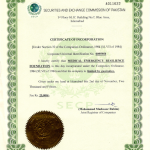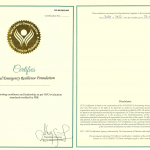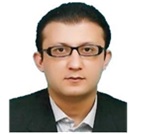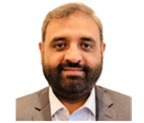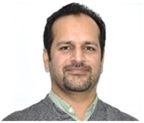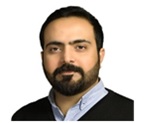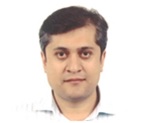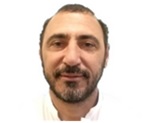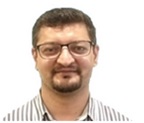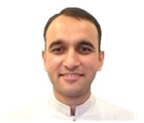About Us
- Home
- About Us
About MERF
Legal Status
Medical Emergency Resilience Foundation (MERF) is a national NGO registered with Securities and Exchange Commission of Pakistan (SECP) under Section 42 of Companies Ordinance 1984, as a not for profit organization. MERF has been certified as an NPO by FBR under section 2(36) of Income Tax Ordinance 2001 and is a registered taxpayer with National Tax Number 7212843-0. MERF is also a Pakistan Centre for Philanthropy (PCP) certified organization.
Mission and Vision
MISSION: Saving lives by providing effective, efficient and affordable healthcare in resource poor settings. VISION: MERF aims to improve access to quality health care services which are equitable, efficient and affordable in collaboration with governments, international organizations and private entities. MERF provides services in health care delivery, capacity building of health workers, heath care governance, supply chain management, health management information system and health care policy and planning in order to positively contribute to the health status of the population.
Our Objectives
The main objectives of the organization are:
1- To support public health care system with special emphasis on maximizing access to a basic package of quality essential healthcare services.
2- To improve nutritional status of population through nutrition specific and nutrition sensitive interventions.
3- To prevent and/or mitigate water, sanitation and hygiene-related diseases through evidence based systematic approaches.
4- To deliver emergency services and develop resilience in response to natural and man-made disasters.
5- To develop and advocate policies for health systems strengthening.
Our Leadership
MERF has a dynamic and vibrant team with decades of experience and expertise in development, health, program implementation and monitoring, financial management, supply chain management and administration. MERF team is strongly committed to their work and follows strategic approaches to problem solving. At MERF, the team leaders believe in delegating tasks to team members, which allow them to focus on improving workplace functions and productivity.
Currently, MERF employs and manages more than 2000 staff in its head office and field offices including project and government staff whose operational management has been transferred to the MERF under the covenants of project agreement.
Dr Shah Miran
Cheif Executive Officer
Sayed Ghalib
Director Operations
Faisal Riaz
Director Finance
Dr Khurram Awan
Technical Advisor - Health
Dr Aurang Zaib
Emergency Response Coordinator
Fozia Naeem
Manager Human Resource
Alam Gul
Manager - M&E
Tariq Mehr
Manager - Grants, Compliance & Audits
Sardar Asad
Manager - Logistics
Our Team
MERF has a dynamic and vibrant team of over 2700 professionals led by leadership with decades of experience and expertise in humanitarian and development sectors in public health, hospital management, emergencies, nutrition, WASH and other thematic areas in programs implementation and monitoring, financial management, supply chain management and administration. This number includes women workforce in administrative as well as at field and facilities level positions representing an improving gender balance. These are the staff that are directly hired by MERF while MERF is also managing more than 2000 government staff that are seconded to MERF under PPP model. Similarly, MERF is also managing HR roster that include more than 14,000 professionals and volunteers. MERF’s leadership believes in delegating tasks to team members, which allows them to focus on improving workplace functions and productivity. MERF team is strongly committed to their work and follows strategic and sectoral need approaches.
MERF Team Over the Years | 2018-19 | 2019-20 | 2020-21 | 2021-22 | 2022-23 | |||||
Male | Female | Male | Female | Male | Female | Male | Female | Male | Female | |
Staff | 412 | 196 | 827 | 349 | 956 | 371 | 1324 | 465 | 1754 | 754 |
Total | 608 | 1176 | 1327 | 1789 | 2776 | |||||
Our LEADERSHIP

DR Syed Shah Miran
Chief Executive Officer
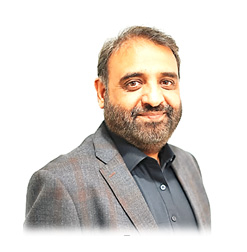
Sayed Ghalib
Director Operations

Faisal Riaz
Director Finance

Dr Khurram Awan
Director Health Programmes
Core Team
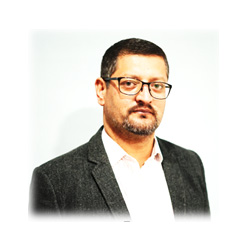
Tariq Mehr
Sr.Manager - Grants, Compliance & Audits

Sardar Asad
Sr.Manager - Logistics
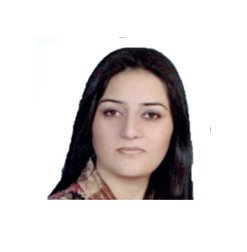
Fozia Naeem
Sr.Manager-HR

Dr Aurang Zeib
Emergency Response Coordinator
Geographical Presence
-
➢ Peshawar
➢ Orakzai – Mishti Mela – NMD
➢ Orakzai – Ghiljo – NMD
➢ Mohmand – NMD
➢ Kurram – NMD
➢ Khyber – NMD
➢ Bajaur – NMD
➢ North Waziristan – NMD
➢ South Waziristan – NMD
➢ Bannu
➢ Lakki Marwat
➢ Tank
➢ Tor Ghar
➢ Karak
-
➢ Karachi
➢ Thatta
➢ Sujawal
-
➢ Quetta
➢ Kalat
➢ Lasbela
➢ Surab
-
➢ Panjgur
➢ Sibi
➢ Kohlu
➢ Zhob
➢ Kharan
➢ Nushki
➢ Mastung
➢ Kalat
➢ Gawadar
➢ Chaghi
➢ Harnai
➢ Musa Khail
➢ Sherani
➢ Lasbella
Our Values
We believe in developing positive and productive relationships with colleagues, identifying constructive solutions to challenges that arise and respecting all those we work with and behaving professionally.
Our governance structure and policies and procedures are aimed at maximizing transparency.
We welcome accountability of our governance, programs, conduct and work.
We do not support or related with any party (political, religious or otherwise).
We do not discriminate on the basis of caste, color, ethnicity, gender, religion, political affiliation, geographical or linguistic background, marital status, sexual orientation, age or physical disability.
We strongly believe in rule of law and adhere to requirements of the law in the country and under International conventions.
The members who consist of eminent citizens and distinguished professionals have the ultimate responsibility for the governance of the organization. The members serving as Board of Directors provide management oversight through periodic Board meetings as well as annual general meeting (AGM) of the members. The organization is headed by Chief Executive Officer (CEO) appointed by Board. The CEO is responsible for overall operations of the organization and is reportable to Board.
We believe in organization’s competence and capabilities by implementing the best industry practices our programs and governance.
MERF has well defined and documented staff policies and procedures covering recruitment and selection, performance management, training and development and grievance redressal mechanism. Its policies and practices promote gender equity, equal opportunity and safeguarding of children. MERF as clear written policy and mechanism on conflict of interest.
MERF focuses on establishing accountability and responsibility, and pushing programme management to the lowest practical, rather than highest possible, position. In other words, from HO to district Offices and further from district offices to field offices. Most importantly, the program management cycle has been devised to ensure that MERF is clearly accountable to all internal and external stakeholders, including its donors, partners, beneficiaries and staff.
MERF has a sound financial management system, policies and procedures. There is a clear segregation of duties with clearly defined authorization thresholds. The system ensures that the financial information and documentation is accurate, complete and as per best industry practices.
MERF follows a stringent compliance framework under which it is subject to statutory audit on annual basis. The scope, methodology and conduct of the audit is governed by the applicable International Standards on Auditing (ISAs) as notified by SECP. In addition to annual audits, project audits are also carried out in accordance with donor requirements. MERF also maintains an internal audit and compliance function.
MERF believe on result based management monitoring and evaluation system and is focusing on monitoring the outcome and impact rather than activities and inputs. MERF used the logical framework as a basis for project design and establishes the quantifiable monitoring indicators against the objectives and measure the qualitative results against assumption, risk and stakeholder.

